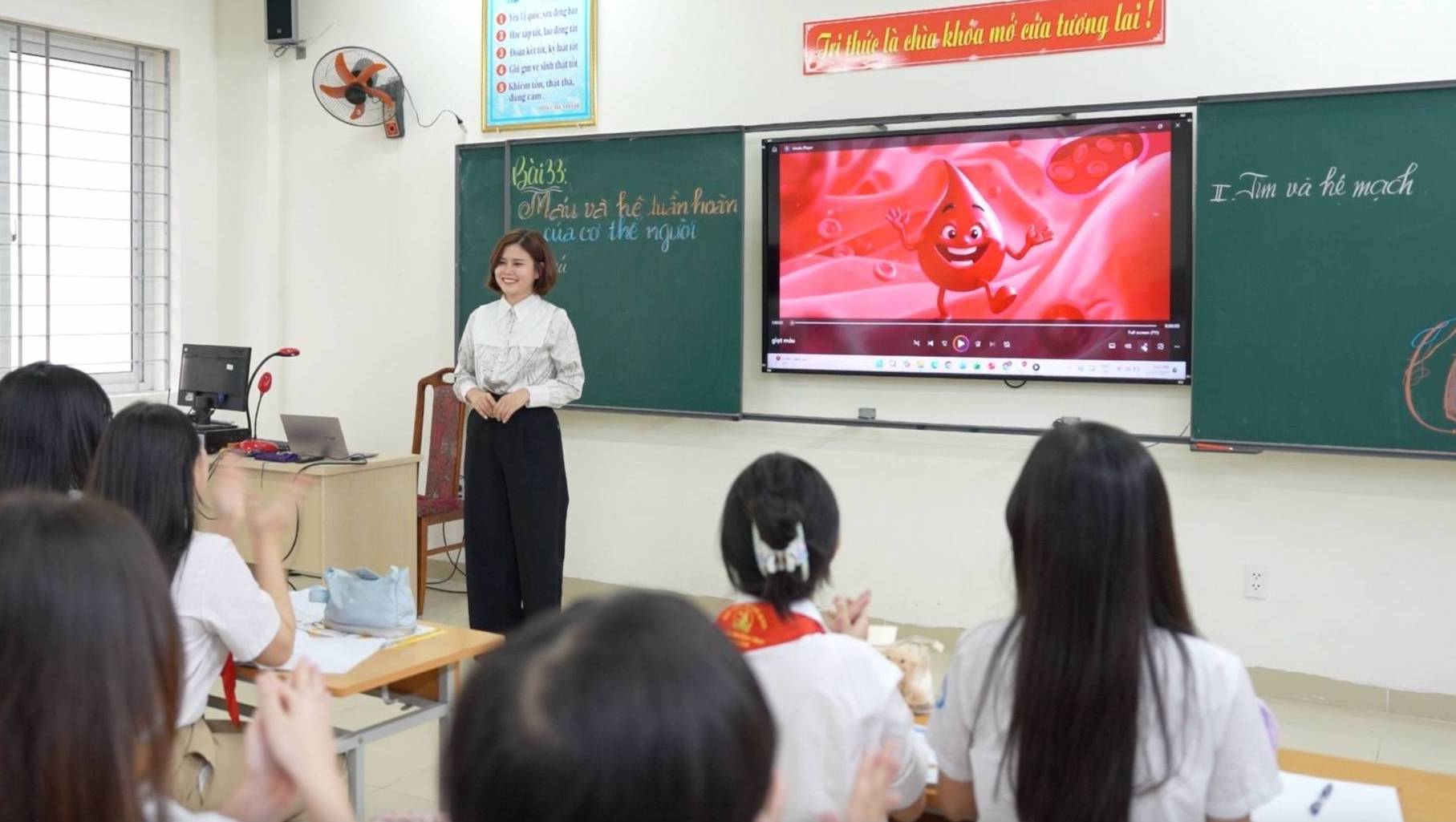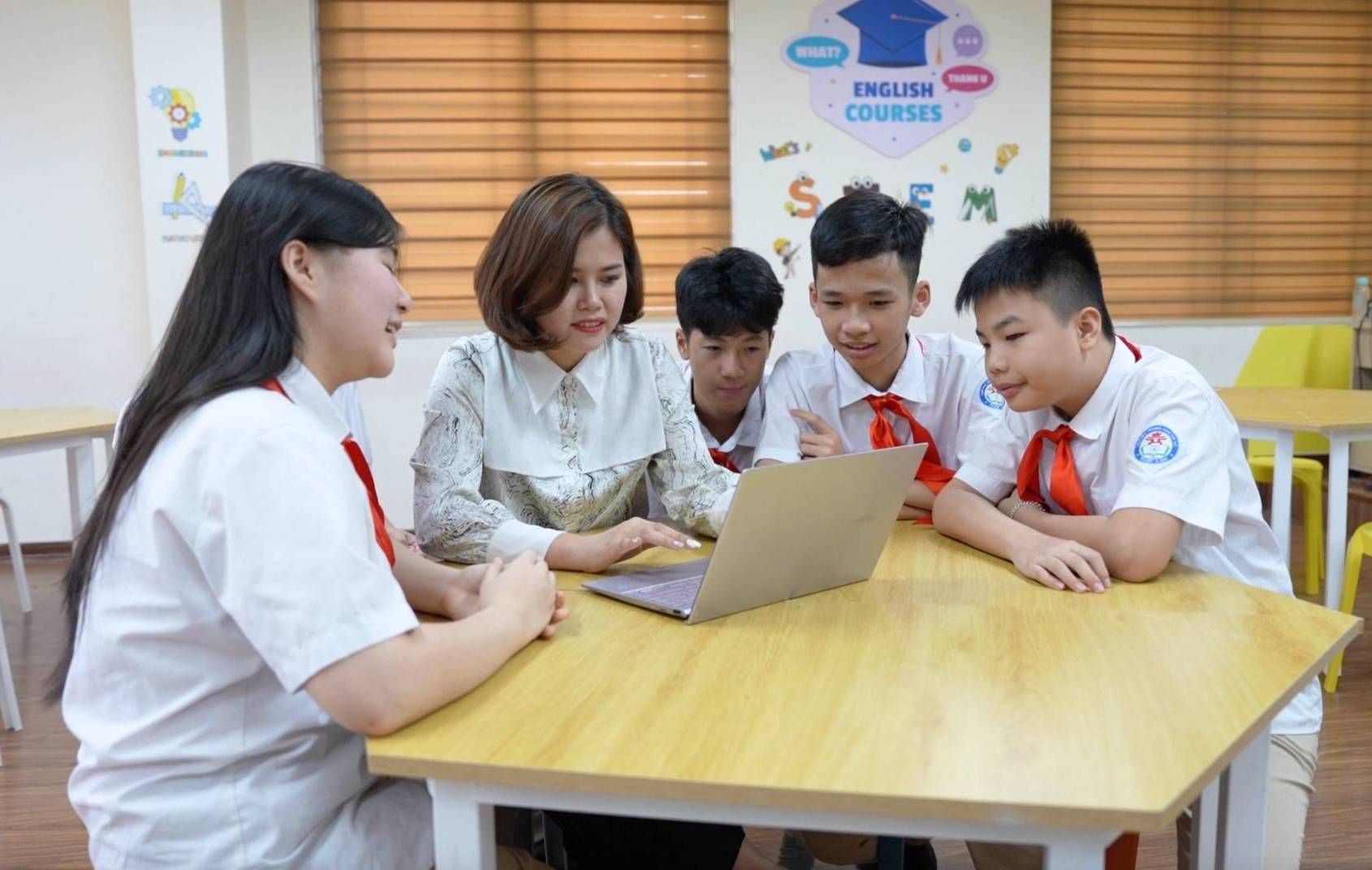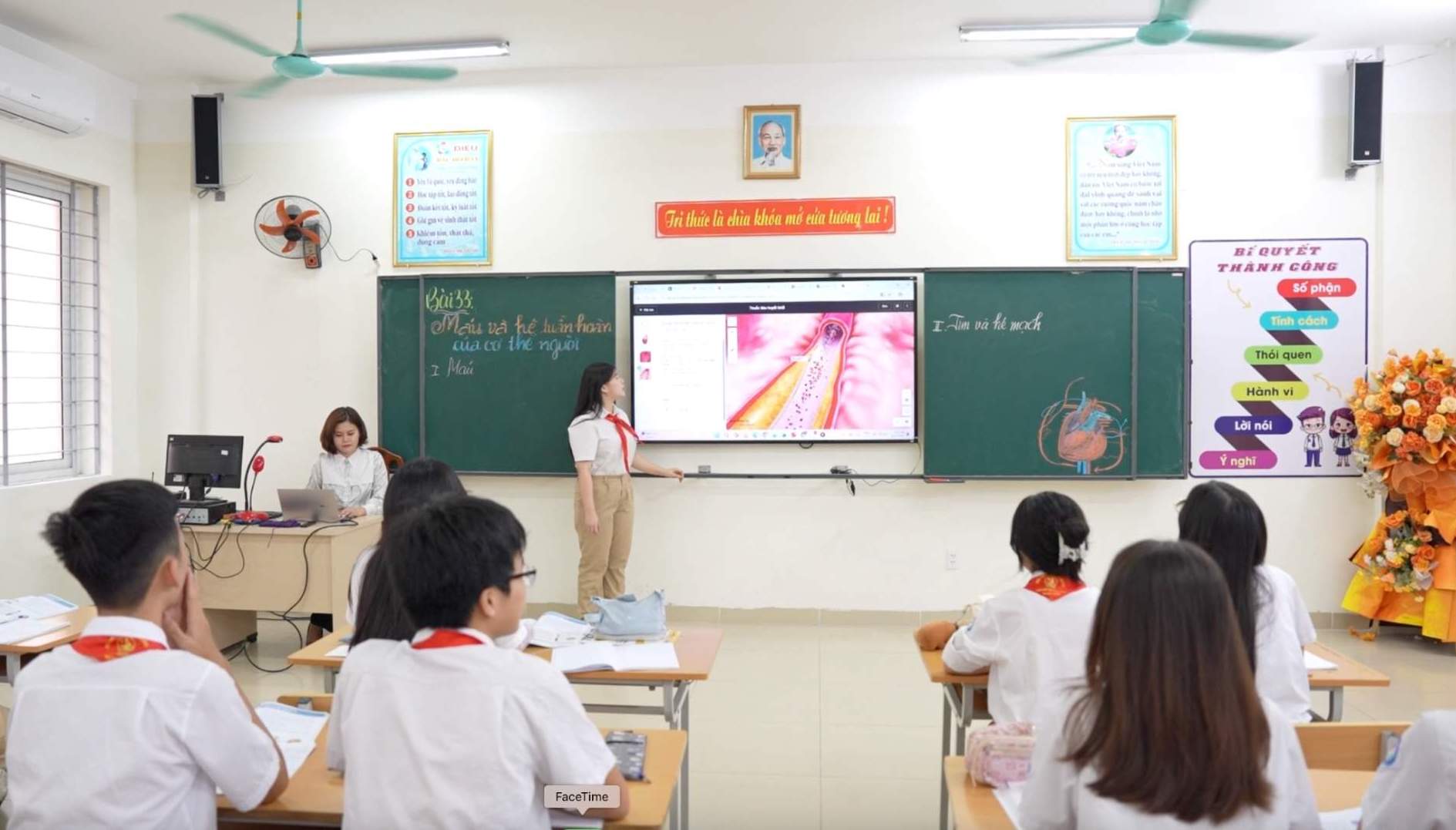Amid concerns about innovation, teachers choose AI as a companion
From a young age, when asked about her career dream, Ms. Pham Huyen Trang - a teacher in the Natural Sciences group - Ngoc Lam Secondary School (Bo De Ward, Hanoi) - always imagined herself as a teacher. With the support of her family, she studied Pedagogy, graduated in 2016 and has since been attached to the school. For her, the teaching profession is not only a job but also a mission, a place to sow the seeds of knowledge and humanistic values for students.

In her first years in class, Ms. Trang always cared about innovating teaching methods to make students more proactive and interested. She observes, listens and Experts with many methods, but everything is still limited in the context of increasingly strong digital transformation. In fact, technology has penetrated into life, but is not really present in the classroom.
The situation has begun to change in the past two years, when AI exploded and appeared everywhere. She realized that if only banned, students would still use this technology, but in a stealthy, unoriented way, which could easily lead to passive copying. "Therefore, I decided to bring AI into the classroom, with a soft but solid philosophy - choosing to give tools, instead of building barriers" - Ms. Trang expressed.
For example, in a class on the cardiovascular and circulatory system, Ms. Huyen Trang created an opportunity for students to explore a lively 3D world, where they see oxygen, nutrients and drugs circulating in the blood, while observing the process of the heart contracting continuously to maintain circulation.
Sharing with Lao Dong reporter, Ms. Trang said that when applying AI to the classroom, she always approaches it gently, focusing on the experience of students. She aims for three main goals: turning AI into an assistant to suggest ideas, but the final decision still belongs to students; practicing critical thinking, helping them know how to ask questions, verify and evaluate information; at the same time, equipping students with the skills to master technology, so that students know how to turn tools into the strength of self-development.
According to her, in the context of technology increasingly entering every area of life, knowing how to use AI proficiently is no longer an option but a survival and competitive skill. "I want my students to master technology, know how to turn tools into strength to develop themselves, instead of being guided or dominated by technology" - Ms. Trang said.
Through this teaching method, Ms. Trang not only implements knowledge but also helps students nurture independent, creative thinking and proactive spirit - important provisions for them to confidently step into the future.
Giving AI empowerment to students to develop thinking
To achieve the set goals, Ms. Trang constantly researches and Experimentes. She attends training courses at the school, connects with online groups of teachers, experiences many different AI tools and exchanges experiences with colleagues. Thanks to that, she feels steadfast when accompanying students.
She also found that when they have access to AI, they are very interested, quickly self-study and proactively explore. "If I hadn't gone before my children and not updated technology, I wouldn't have been able to become the teacher they look forward to or inspire them" - she shared.

According to Ms. Trang, the teaching method combined with AI has brought many benefits beyond expectations. First of all, students develop adaptive capacity: they learn to self-study, exploit technology, and be flexible in the face of changes. In a world where today's knowledge may become old tomorrow, flexible thinking and the ability to explore through technology are invaluable skills.
Second, Ms. Trang emphasized the superiority of humans over machines. When AI does a good job of repetition, calculation or data analysis, she wants students to focus on developing emotional intelligence (EQ), creativity and ethical thinking - qualities that AI cannot replace.
"At the same time, I teach students about digital responsibility: respect copyright, understand the limits of academic integrity, and use technology in a civilized and responsible way. These are basic lessons to help them grow up to be brave digital citizens and rich in ethics in the future" - Ms. Trang added.

After studying and combining traditional knowledge with AI, students not only absorb lively lessons, but also clearly see the connection between theory and practice, confidently explore, apply knowledge and practice thinking, creativity and problem-solving skills.
Phan Hong Loc - a student of class 8A1, Ngoc Lam Secondary School - said that when they first approached, students did not know how to ask questions so that AI could answer questions that were correct and suitable for each person's needs.
"However, AI really helps a lot in learning. I have used AI in my study and have achieved good results. AI not only helps expand knowledge but also summarizes information into a mindmap, making it easier for students to remember and understand lessons. In addition, we can also rely on AI to answer questions that we do not yet understand in class, thereby learning more effectively" - Hong Loc expressed.
Nguyen Gia Bao - an 8th grade student at Ngoc Lam Secondary School - also expressed his excitement: "Using AI to make students more active thanks to rich images and sounds. In addition, the software also helps look up useful information and make suggestions when doing exercises, which is very supportive for us".











